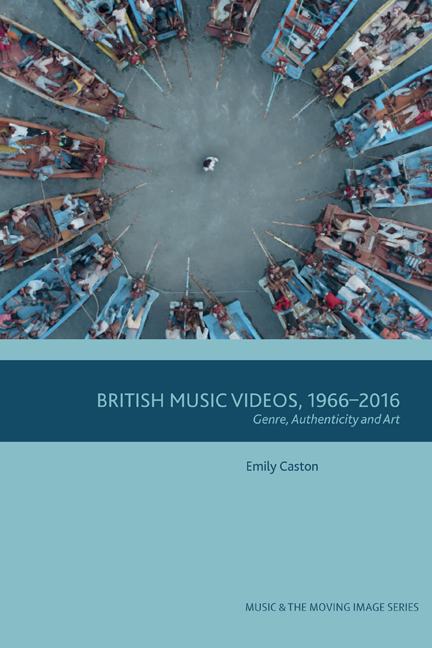Summary
In the Moonlandingz’ ‘The Strangle of Anna’ (2016), the vocalist gendered as female reveals menstrual blood stains on her white dress and stuffs her mouth with cake whilst singing (Rebecca Taylor). The vocalist gendered as male feigns a variety of satirical dance poses, with fried eggs stuck to his nipples by clingfilm (Johnny Rocket, aka Fat White Family's Lias Saoudi). It was filmed in three hours, using some old cans of film that director Dawn Shadforth had been keeping at home. ‘It's a video that's not really a video for a band who are not really a band,’ said Shadforth (Knight 2017).
The representation of female sexuality has arguably received more attention than any other subject in music video scholarship since the early 1980s, often drawing on Laura Mulvey's essay on the male gaze (1989). Successive content analyses of gender roles produced by scholars in the MTV period examined negative images of women as sex objects (Baxter et al. 1985, Brown and Campbell 1986, Sherman and Dominick 1986, Vincent et al. 1987). Lieb has written that, ‘[m]ore than any other cultural force, MTV made beauty and sexuality a primary factor in a musician's career’ (2013: xv), whilst Austerlitz has written that ‘[m]usic videos, for the most part, are intended for men’s eyes, providing them with endless opportunities to delectate in the spectacle of beautiful women performing for their pleasure’ (Austerlitz 2007: 4). Issues regarding gendered representation remain a key focus in scholarship (e.g. Beebe and Middleton 2007, Railton and Watson 2005).
The objective of this chapter is to counter that focus. ‘The Strangle of Anna’ is an example of gender fluidity and the breakdown of the binary divisions between masculine and feminine which we have seen in music video in Britain since the mid-1960s. I believe this is a specifically British tendency. Below I present a number of examples from our collection that illustrate the ways in which fixed concepts of gender (and indeed sexuality) have been challenged by British artists, based on the paradigm developed by Judith Butler ([1990] 2002) in which the gendered self is a cultural construction. As Wallis argues, using Irving Goffman's concept of gender display (1976), artists perform gender (Wallis 2011: 172).
- Type
- Chapter
- Information
- British Music Videos 1966 – 2016Genre, Authenticity and Art, pp. 72 - 87Publisher: Edinburgh University PressPrint publication year: 2020



